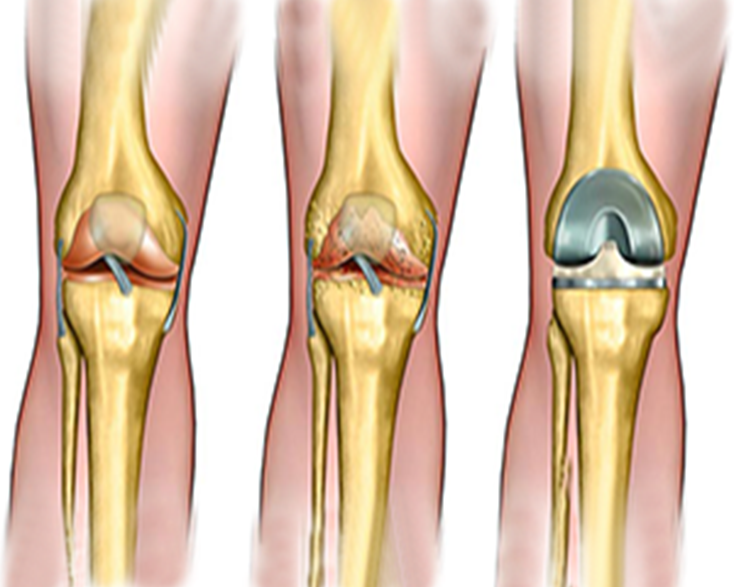
DAVE WATTS, MD
Orthopedic Surgeon
Total Knee Replacement

The knee is an important and one of the biggest joints in the human body. We often tend to ignore minor knee problems until they become unavoidable. Knee problems can be caused due to job-related joint stresses, sports, and other recreational activities. Age can also contribute to the deterioration of the knee joint. Diseases like arthritis and osteoporosis may also add to knee-related problems.
Injuries are another major cause of knee related issues. A direct blow to the knee may cause severe injury or abnormal twisting.
Core Orthopedics surgeons routinely treat knee related problems. We take care of all types of knee related injuries resulting from various causes.
WHY KNEE REPLACEMENT
Knee replacement is not an easy decision. However, you may face a situation where there is no other option left but to get your knee replaced. Core Orthopedics team of surgeons reaches the decision of knee replacement after consultation and by taking the patient into confidence.
CARE AT EACH STAGE
Our surgeon will take care of all pre-operation procedures to prepare the patient. This pre-operation may include blood tests, general medical check-up, anti-inflammatory medications, and ceasing of any medication.
At the day of your operation, you will be admitted to the hospital and further tests may be conducted depending on your medical condition. The doctor may ask questions to accurately ascertain your health conditions and vital health signs.
After successful completion of the knee replacement surgery, you will be kept in the recovery room for monitoring your vital health information. Once stable, you will be taken to the recovery ward. A normal knee replacement operation takes 24 hours for the drain to come out. After the drain, most patients are able to slowly start moving and can walk within a day or two of the surgery.
Here are some of the benefits of knee replacement.
-
Knee replacement surgery shortens your stay at the hospital.
-
Most of the surgeries result in a lesser amount of blood lost.
-
Total time of rehabilitation is significantly shortened.
-
The use of minimally invasive techniques results in smaller incisions.
-
Reduced trauma caused to the tendons and muscles.